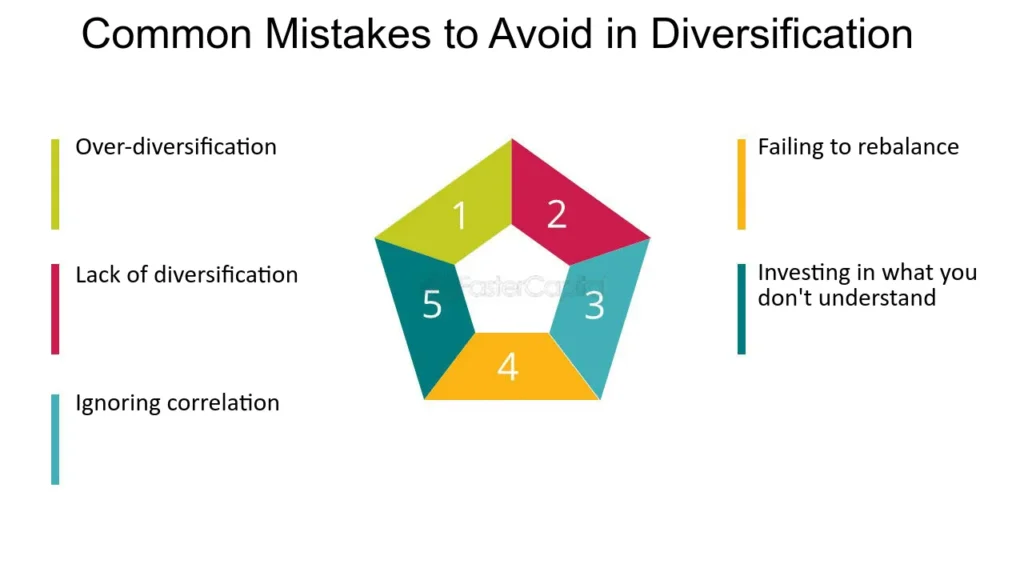The BloGGinG book.
Investing in the stock market is one of the most effective ways to build wealth. However, new investors often fall into common traps that can cost them money and confidence. If you’re just starting out, understanding these mistakes can help you avoid them and set yourself on a successful financial journey.
1. Investing Without a Plan

Many beginners jump into the market without clear goals. They buy random stocks based on trends or tips.
Investing without a plan is like sailing without a compass; you might move forward, but you have no direction. Many new investors start buying stocks impulsively, following trends or tips without understanding their financial goals. This often leads to inconsistent decisions, unnecessary risks, and potential losses. A solid investment plan should define your objectives, whether it’s wealth creation, retirement savings, or building an emergency fund, along with your risk tolerance and time horizon. By setting a clear roadmap, you ensure that every investment aligns with your long-term strategy, reducing emotional decisions and improving your chances of success.
How to Avoid: Define your investment goals, time horizon, and risk tolerance before you start.
2. Trying to Time the Market

Trying to time the market is one of the most common and costly mistakes investors make. Many beginners believe they can predict when prices will rise or fall, leading them to buy during market highs and sell during lows, exactly the opposite of what’s profitable. In reality, even seasoned professionals struggle to consistently time the market. Missing just a few of the best-performing days can significantly reduce your long-term returns. Instead of chasing short-term gains, focus on a disciplined approach like dollar-cost averaging and long-term investing. This strategy minimizes emotional decisions and allows your investments to grow steadily over time.
How to Avoid: Focus on long-term investing and consider strategies like dollar-cost averaging instead of timing the market.
3. Ignoring Diversification

Putting all your money into one stock or sector increases risk.
Ignoring diversification is like putting all your eggs in one basket; a single bad move can wipe out your entire investment. Many beginners make the mistake of investing all their money in one stock, one sector, or one asset class, assuming it will deliver high returns. However, markets are unpredictable, and no single investment is risk-free. Diversification spreads your risk by allocating funds across different sectors, asset types, and even geographies. This way, when one investment underperforms, others can balance out the loss, ensuring overall portfolio stability. A diversified portfolio is the foundation of long-term wealth building.
How to Avoid: Spread your investments across different sectors, asset classes, and regions to reduce risk.
4. Chasing Hot Tips or Trends

Buying stocks based on rumors or social media hype often leads to losses.
Chasing hot tips or trends is a trap that lures many new investors into making impulsive decisions. Hearing about a “sure-shot stock” from friends, social media, or market buzz can be tempting, but these tips rarely consider your personal financial goals or risk tolerance. By blindly following the crowd, you risk buying overpriced stocks or investing in companies you know nothing about, often at the peak of their hype. Instead, base your decisions on thorough research, company fundamentals, and a well-defined strategy. Remember, what worked for someone else may not work for you. Smart investing is built on analysis, not rumors.
How to Avoid: Do your own research or consult financial experts before investing.
5. Not Understanding What You Invest In

Investing in businesses you don’t understand can lead to bad decisions.
Investing in something you don’t understand is like walking into a maze blindfolded; you’re bound to get lost. Many beginners buy stocks simply because they are popular or recommended, without knowing the company’s business model, financial health, or industry trends. This lack of knowledge can lead to poor decisions and unexpected losses when markets turn volatile. Before investing, take time to research the company: What does it do? How does it make money? What are its risks? Informed investing not only minimizes surprises but also builds confidence in your decisions. Always remember, clarity is the first step toward profitability.
How to Avoid: Study the company, its financials, and the industry before buying shares.
6. Overlooking Fees and Costs

Brokerage fees, mutual fund expenses, and taxes can eat into profits.
Overlooking fees and costs might seem harmless, but over time, they can eat away a significant portion of your returns. Many beginners focus solely on stock prices and potential gains, forgetting that brokerage charges, mutual fund expense ratios, and taxes can reduce profits substantially. For example, paying high management fees on mutual funds year after year can silently drain your wealth. The solution is simple: choose low-cost brokers, compare fund expense ratios, and stay aware of tax implications. Remember, every rupee saved on fees is a rupee added to your returns. Small savings today can mean big gains tomorrow.
How to Avoid: Choose low-cost brokers and understand the fee structure before investing.
7. Letting Emotions Drive Decisions

Fear during a market dip or greed during a rally can lead to irrational decisions.
Letting emotions drive investment decisions is a surefire way to derail your financial goals. Many investors panic and sell when markets fall, or rush to buy during a rally driven by fear of missing out (FOMO). These emotional reactions often lead to buying high and selling low, the exact opposite of a successful strategy. The key to avoiding this trap is discipline. Stick to your investment plan, rely on data instead of feelings, and remember that market volatility is normal. Patience and rational thinking, not impulse and fear, are what turn investors into long-term winners.
How to Avoid: Stick to your plan and avoid making decisions based on panic or excitement.
8. Neglecting Emergency Funds

Investing without an emergency fund can force you to sell investments during downturns.
Neglecting an emergency fund before investing is a mistake that can quickly turn your financial plan upside down. Life is unpredictable; job loss, medical emergencies, or sudden expenses can arise at any time. Without a financial cushion, you might be forced to sell your investments at a loss just to cover urgent needs. Experts recommend setting aside at least 3 – 6 months’ worth of living expenses in a liquid savings account before you start investing. This safety net ensures that your investments can remain untouched during tough times, allowing them to grow as intended without disruption.
How to Avoid: Keep at least 3–6 months’ worth of expenses in a savings account before investing.
9. Forgetting About Taxes

Failing to account for capital gains tax and dividend tax can come as a surprise to new investors.
Forgetting about taxes can significantly reduce your actual investment returns. Many new investors focus solely on profits without considering capital gains tax, dividend tax, or other applicable charges. Selling stocks too quickly or ignoring the difference between short-term and long-term capital gains can lead to higher tax liabilities than expected. To avoid unpleasant surprises, understand the tax rules for your investments and plan accordingly. Strategies like holding investments for the long term or utilizing tax-saving instruments can help optimize returns. Remember, smart investing isn’t just about earning profits; it’s also about keeping them.
How to Avoid: Understand the tax implications of your investments and plan accordingly.
10. Expecting Quick Riches

Many beginners expect overnight success and get disappointed.
Expecting quick riches is one of the most common mistakes new investors make. The lure of overnight success stories and viral stock tips often creates unrealistic expectations. In reality, successful investing is a long-term game that requires patience, discipline, and consistent effort. Chasing instant profits usually leads to high-risk decisions and frequent losses. Instead, focus on building wealth gradually through a well-diversified portfolio and sound strategies. Remember, the key to financial success lies in steady growth, not sudden windfalls. Slow and steady truly wins the race in investing.
How to Avoid: Remember, investing is a long-term game. Stay patient and focus on gradual wealth building.
Final Thoughts
Avoiding these mistakes can help you become a smarter investor and achieve your financial goals faster. Start small, stay informed, and always think long term.
